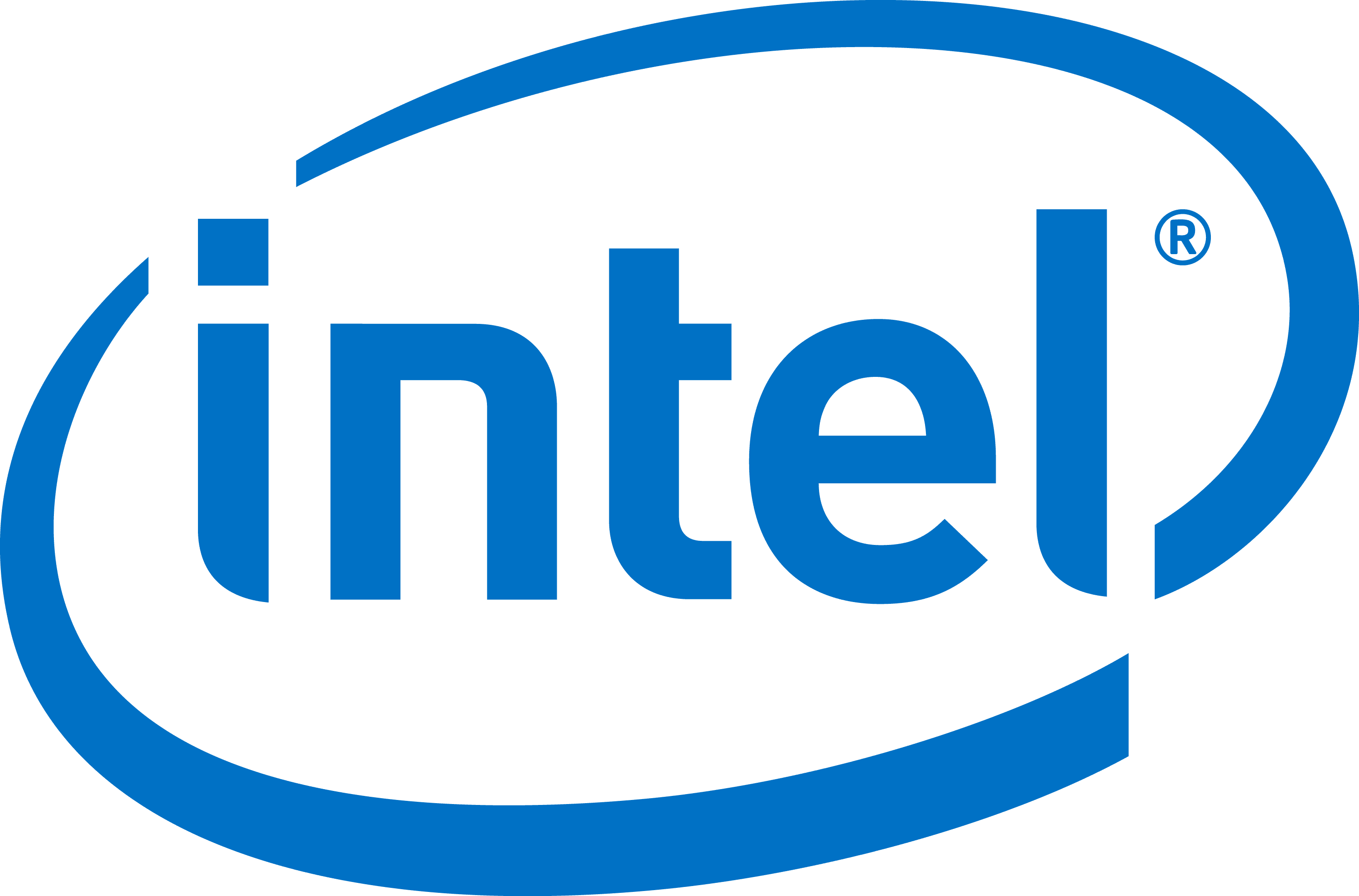The IEEE Conference on Network Softwarization (NetSoft 2019) will feature 4 workshops that will be held June 24 (PVE-SDN and SecSoft) and June 28 (ETSN and S4SI) in conjunction with the main conference. All but ETSN 2019 are full-day events.
Monday June 24, 2019
- 3rd Workshop on Performance Issues in Virtualized Environments and Software Defined Networking (PVE-SDN 2019).
- 1st Workshop on Cyber-Security Threats, Trust and Privacy Management in Software-Defined and Virtualized Infrastructures (SecSoft 2019).
Friday June 28, 2019
- 2nd Workshop on Emerging Trends in Softwarized Networks (ETSN 2019).
- 2nd Workshop on Advances in Slicing for Softwarized Infrastructures (S4SI 2019).
The full program of each workshop is currently being established, and will be available in each workshop website. In the meantime the list of accepted papers is as follows:
Papers Workshops
PVE-SDN 2019
- Extending TCP for Accelerating Replication on Cluster File Systems over SDNs
- Interference Aware Network Function Selection Algorithm for Next Generation Networks
- On Optimizing Backup Sharing Through Efficient VNF Migration
- QoE-Aware Real-Time Multimedia Streaming in SD-WANs
- Network Slicing Optimization in Large Scale LoRa Wide Area Networks
- Optimal Cache Placement and Migration for Improving the Performance of Virtualized SAND
- Performance Evaluation on Virtualization Technologies for NFV Deployment in 5G Networks
- Run-time Performance Monitoring, Verification, and Healing of End-to-End Services
- SDRBench: A Software-Defined Radio Access Network Controller Benchmark
- IP Multimedia Subsystem in a containerized environment: availability and sensitivity evaluation
SecSoft 2019
- A Novel Impact Analysis Approach for SDN-based Networks
- A proposal for trust monitoring in a Network Functions Virtualization Infrastructure
- Towards protected VNFs for multi-operator service delivery
- Secure Edge Computing with Lightweight Control-Flow Property-based Attestation
- A Survey on Honeypots, Honeynets And Their Applications On Smart Grid
- Data Protection by Design for cybersecurity systems in a Smart Home environment
- Blockchain Solutions for Forensic Evidence Preservation in IoT Environments
S4SI 2019
- Mininet-NFV: Evolving Mininet with OASIS TOSCA NVF profiles Towards Reproducible NFV Prototyping
- Reorchestration: a reactive orchestration architecture
- Interworking of softwarized infrastructures for enabling 5G multi-site slice orchestration
- Key Performance Indicators for 5G network slicing
- SliceNet Control Plane for 5G Network Slicing in Evolving Future Networks
- A Marketplace-based Approach to Cloud Network Slice Composition Across Multiple Domains
- A Study of Slice-Aware Service Assurance for Network Function Virtualization
- Optimized Service Chain Placement Using Genetic Algorithm
ETSN 2019
- P4I/O: Intent-Based Networking with P4
- An Experimental Evaluation of Flow Setup Latency in Distributed Software Defined Networks
- A Deep Learning Approach to VNF Resource Prediction using Correlation between VNFs
Website: PVE-SDN 2019
June 24, 2019 – Full Day
Room: tba
9:15 a.m. – 9:30 a.m.
Opening
Session Chair: tbc9:30 a.m. – 10:30 a.m.
Keynote (tba)
Session Chair: tbc10:30 a.m. – 11:00 a.m.
Coffee Break11:00-12:30
TS1 – Performance Evaluation and Benchmarking
Session Chair: tbc
Performance Evaluation on Virtualization Technologies for NFV Deployment in 5G Networks
Rasoul Behravesh, FBK CREATE-NET & University of Bologna, Italy
Estefania Coronado, FBK CREATE-NET, Italy
Roberto Riggio, FBK CREATE-NET, Italy
Run-time Performance Monitoring, Verification, and Healing of End-to-End Services
Nakjung Choi, Nokia & Nokia Bell Labs, USA
Lalita Jagadeesan, Nokia Bell Labs, USA
Young Kim, Perspecta Labs, USA
Nishok Mohanasamy, Nokia Bell Labs, USA
Muntasir Raihan Rahman, Nokia Bell Labs, USA
Krishan Sabnani, Nokia Bell Labs, USA
Marina Thottan, Bell Labs, USA
SDRBench: A Software-Defined Radio Access Network Controller Benchmark
Arled Papa, Technical University of Munich, Germany
Raphael Durner, Technical University of Munich, Germany
Fabian Edinger, Technical University of Munich, Germany
Wolfgang Kellerer, Technical University of Munich, Germany
IP Multimedia Subsystem in a containerized environment: availability and sensitivity evaluation
Mario Di Mauro, University of Salerno, Italy
Giovanni Galatro, University of Salerno, Italy
Maurizio Longo, University of Salerno, Italy
Fabio Postiglione, University of Salerno, Italy
Marco Tambasco, Research Consortium on Telecommunications & University of Salerno, Italy
12:30-13:30
Lunch Break
13:30-15:30
TS2 – SDN/NFV Deployment Challenges
Session Chair: tbc
Extending TCP for Accelerating Replication on Cluster File Systems over SDNs
Sungheon Lim, Korea University, Korea
Hyogon Kim, Korea University, Korea
Interference Aware Network Function Selection Algorithm for Next Generation Networks
Venkatarami Reddy Ch, Indian Institute of Technology Hyderabad, India
Gaurav Garg, Indian Institute of Technology Hyderabad, India
Bheemarjuna Reddy Tamma, Indian Institute of Technology Hyderabad, India
Antony Franklin A, Indian Institute of Technology Hyderabad, India
On Optimizing Backup Sharing Through Efficient VNF Migration
Saifeddine Aidi, École de Technologie Supérieure (ÉTS Montreal), Canada
Mohamed Faten Zhani, École de Technologie Supérieure (ÉTS Montreal), Canada
Yehia Elkhatib, Lancaster University, United Kingdom
QoE-Aware Real-Time Multimedia Streaming in SD-WANs
Ibtihal Ellawindy, University of Ontario Institute of Technology, Canada
Shahram Shah Heydari, University of Ontario Institute of Technology, Canada
Network Slicing Optimization in Large Scale LoRa Wide Area Networks
Samir Dawaliby, University of Poitiers, France
Abbas Bradai, University of Poitiers, France
Yannis Pousset, University of Poitiers, France
Optimal Cache Placement and Migration for Improving the Performance of Virtualized SAND
Reza Shokri Kalan, Ege University, Turkey
Muge Sayit, Ege University, Turkey
Stuart Clayman, University College London (UCL), United Kingdom
15:30-16:00
Coffee Break
16:00-17:00
Panel & Closing
Website: SecSoft 2019June 24, 2019 – Full Day
Room: tba9:00 a.m. – 9:10 a.m.
Welcome Session
Session Chair: tbc9:10 a.m. – 10:30 a.m.
TS1 – Cyber-security in NFV/SDN
Session Chair: tbcA proposal for trust monitoring in a Network Functions Virtualization Infrastructure
Marco De Benedictis, Politecnico di Torino, Italy
Antonio Lioy, Politecnico di Torino, ItalyA Novel Impact Analysis Approach for SDN-based Networks
Beny Nugraha, Technical University of Chemnitz, Germany
Mehrdad Hajizadeh, Technical University of Chemnitz, Germany
Trung V. Phan, Technical University of Chemnitz, Germany
Thomas Bauschert, Technical University of Chemnitz, Germany
Towards protected VNFs for multi-operator service delivery
Enio Marku, NTNU, Norway
Gergely Biczók, Budapest University of Technology and Economics, Hungary
Colin Boyd, NTNU, Norway
10:30 a.m. – 11:00 a.m.
Coffee break
11:00 a.m. – 11:30 a.m.
Keynote speech #1
On the security of Cyber Physical Systems for Smart, Circular cities
Vasilis Katos, Bournemouth University, UK
11:30 a.m. – 12:30 p.m.
Poster Session – Situational awareness: EU funded projects
Session Chair: tbc
ASTRID – AddreSsing ThReats for virtualIseD services
Matteo Repetto, CNIT, Italy
Scope – The growing adoption of cloud technologies and the trend to virtualize applications are inexorably re-shaping the traditional security paradigms, due to the increasing usage of infrastructures outside of the enterprise perimeter and shared with other users. The ASTRID project aims at shifting the detection and analysis logic outside of the service graph of virtualized services, by leveraging descriptive context models and their usage in ever smarter orchestration logic, hence shifting the responsibility for security, privacy, and trustworthiness from developers or end users to service providers.
Web site: https://www.astrid-project.eu/
CYBER-TRUST – Advanced Cyber-Threat Intelligence, Detection, and Mitigation Platform for a Trusted Internet of Things
Tbc
Scope – The CYBER-TRUST project aims to develop an innovative cyber-threat intelligence gathering, detection, and mitigation platform to tackle the grand challenges towards securing the ecosystem of IoT devices. The proposed interdisciplinary approach will capture different phases of such emerging attacks, before and after known (even years old) or unknown (zero-day) vulnerabilities have been widely exploited by cyber-criminals to launch the attack. This intelligence information will be used to maintain accurate vulnerability profiles of IoT devices, in accordance with data protection, privacy, or other regulations, and optimally alter their attack surface to minimize the damage from cyber-attacks.
Web site: https://cyber-trust.eu/
SPEAR – Secure and PrivatE smArt gRid
Panagiotis Sarigiannidis, University of Western Macedonia, Greece
Scope – As our society is becoming increasingly dependent on Critical INfrastructures (CIN), new technologies are needed to increase our detection and response capabilities. One of the most vulnerable and high-impact CIN is the Smart Grid. The SPEAR proposal aims at a) detecting and responding to cyber-attacks using new technologies and capabilities, b) detecting threat and anomalies timely, c) developing all-in-one security detection solutions, d) leveraging advanced forensics subject to privacy-preserving, e) confronting Advanced Persistent Threat (APT) and targeted attacks in smart grids, f) increasing the resilience of the smart grid innovation, g) alleviating the lack of trust in smart grid operators.
Web site: https://www.spear2020.eu/
REACT – Reactively Defending against Advanced Cybersecurity Threats
Tbc
Scope – Despite the evolution of computer systems, current security defences – although they have been substantially improved in the last decade – do not seem not really efficient enough to stop advanced cyber-attacks. We believe that the core of this problem is that cyber attackers are almost always one step ahead of the cyber security researchers and practitioners. Instead of following the cyber attackers, researchers should try to forecast where attackers will strike next and to use this information (i) to fortify potential targets to withstand the attack and (ii) to wire targets up with forensic hooks and make them “forensics ready”. To make all this possible at a reasonable performance cost, we propose selective fortification, a mechanism that combines traditional passive and active defence approaches into a new reactive mode of operation.
Web site: http://www.react-h2020.eu/
SHIELD – Securing against intruders and other threats through a NFV-enabled environment
Antonio Lioy, Politecnico di Torino, Italy
Topic – The SHIELD project proposes a universal solution for dynamically establishing and deploying virtual security infrastructures into ISP and corporate networks. SHIELD builds on the huge momentum of Network Functions Virtualisation (NFV), as currently standardized by ETSI, in order to virtualize security appliances into virtual Network Security Functions (vNSFs), to be instantiated within the network infrastructure using NFV technologies and concepts, effectively monitoring and filtering network traffic in a distributed manner. Logs and metrics from vNSFs are aggregated into an information-driven Data Analysis and Remediation Engine (DARE), which leverages state-of-the-art big data storage and analytics in order to predict specific vulnerabilities and attacks by analyzing the network and understanding the adversary possibilities, behavior and intent.
Web site: https://www.shield-h2020.eu/
12:30 p.m. – 1:30 p.m.
Lunch break
1:30 p.m. – 2:00 p.m.
Poster Session (cont’d) – Poster session and open discussion
Session Chair: tbc
2:00 p.m. – 3:00 p.m.
TS2 – Detection and investigation
Session Chair: tbc
Secure Edge Computing with Lightweight Control-Flow Property-based Attestation
Nikolaos Koutroumpouchos, University of Piraeus, Greece
Christoforos Ntantogian, University of Piraeus, Greece
Sofia Anna Menesidou, Ubitech Ltd, Greece
Kaitai Liang, University of Surrey, United Kingdom
Panagiotis Gouvas, Ubitech Ltd, Greece
Christos Xenakis, University of Piraeus, Greece
Thanassis Giannetsos, Technical University of Denmark, Denmark
A Survey on Honeypots, Honeynets And Their Applications On Smart Grid
Christos Dalamagkas, , University of Western Macedonia, Greece
Panagiotis Sarigiannidis, University of Western Macedonia, Greece
Dimosthenis Ioannidis, Information Technologies Institute, Greece
Eider Iturbe, Tecnalia, Spain
Odysseas Nikolis, Information Technologies Institute, Greece
Francisco Ramos, Schneider-Electric, Spain
Erkuden Rios, Tecnalia, Spain
Antonis Sarigiannidis, Aristotle University of Thessaloniki, Greece
Dimitrios Tzovaras, Information Technologies Institute, Greece
3:00 p.m. – 3:30 p.m.
Coffee break
3:30 p.m. – 4:00 p.m.
Keynote speech #2
Title: tbc
Pascal Geenens, Radware, Israel
4:00 p.m. – 4:50 p.m.
TS3 – Privacy and forensics
Session Chair: tbc
Data Protection by Design for cybersecurity systems in a Smart Home environment
Olga Gkotsopoulou, Vrije Universiteit Brussel, Belgium
Elisavet Charalambous, ADITESS Ltd, Cyprus
Konstantinos Limniotis, National and Kapodistrian University of Athens, Greece
Paul Quinn, Vrije Universiteit Brussel, Belgium
Dimitrios Kavallieros, Center for Security Studies, Greece
Gohar Sargsyan, CGI, The Netherlands
Stavros Shiaeles, University of Plymouth, United Kingdom
Nicholas Kolokotronis, University of Peloponnese, Greece
Blockchain Solutions for Forensic Evidence Preservation in IoT Environments
Sotirios Brotsis, University of Peloponnese, Greece
Nicholas Kolokotronis, University of Peloponnese, Greece
Konstantinos Limniotis, National and Kapodistrian University of Athens, Greece
Stavros Shiaeles, University of Plymouth, United Kingdom
Dimitrios Kavallieros, Center for Security Studies, Greece
Emanuele Bellini, Mathema & Khalifa University, Italy
Clement Pavué, Scorechain SA., Luxembourg
4:50 p.m. – 6:00 p.m.
Panel – Smart infrastructures and cyber-security
Panel Chair: Antonio Lioy, Politecnico di Torino, Italy
Panelists: tbc
Website: ETSN 2019June 28, 2019 – Half-Day
Room: tba9:30 a.m. – 10:30 a.m.
Opening and keynote (tba)
Session Chair: tbc10:30 a.m. – 11:00 a.m.
Coffee Break11:00 a.m. – 12:30 p.m.
Technical Session
Session Chair: tbcP4I/O: Intent-Based Networking with P4
Mohammad Riftadi, Delft University of Technology, The Netherlands
Fernando A. Kuipers, Delft University of Technology, The Netherland
An Experimental Evaluation of Flow Setup Latency in Distributed Software Defined Networks
Hemanth Kumar Ravuri, Ghent University & IMEC, Belgium
Maria Torres Vega, Ghent University, Belgium
Tim Wauters, Ghent University & IMEC, Belgium
Bin Da, Beijing Huawei Digital Technologies Co., Ltd., P.R. China
Alexander Clemm, Futurewei Technologies, USA
Filip De Turck, Ghent University & IMEC, Belgium
A Deep Learning Approach to VNF Resource Prediction using Correlation between VNFs
Heegon Kim, POSTECH, Korea
Seyeon Jeong, POSTECH, Korea
Doyoung Lee, POSTECH, Korea
Heeyoul Choi, Handong Global University, Korea
Jae-Hyoung Yoo, POSTECH, Korea
James W. Hong, POSTECH, Korea
12:30 p.m. – 12:45 p.m.
Closing Session
12:45 p.m. – 13:30 p.m.
Lunch









